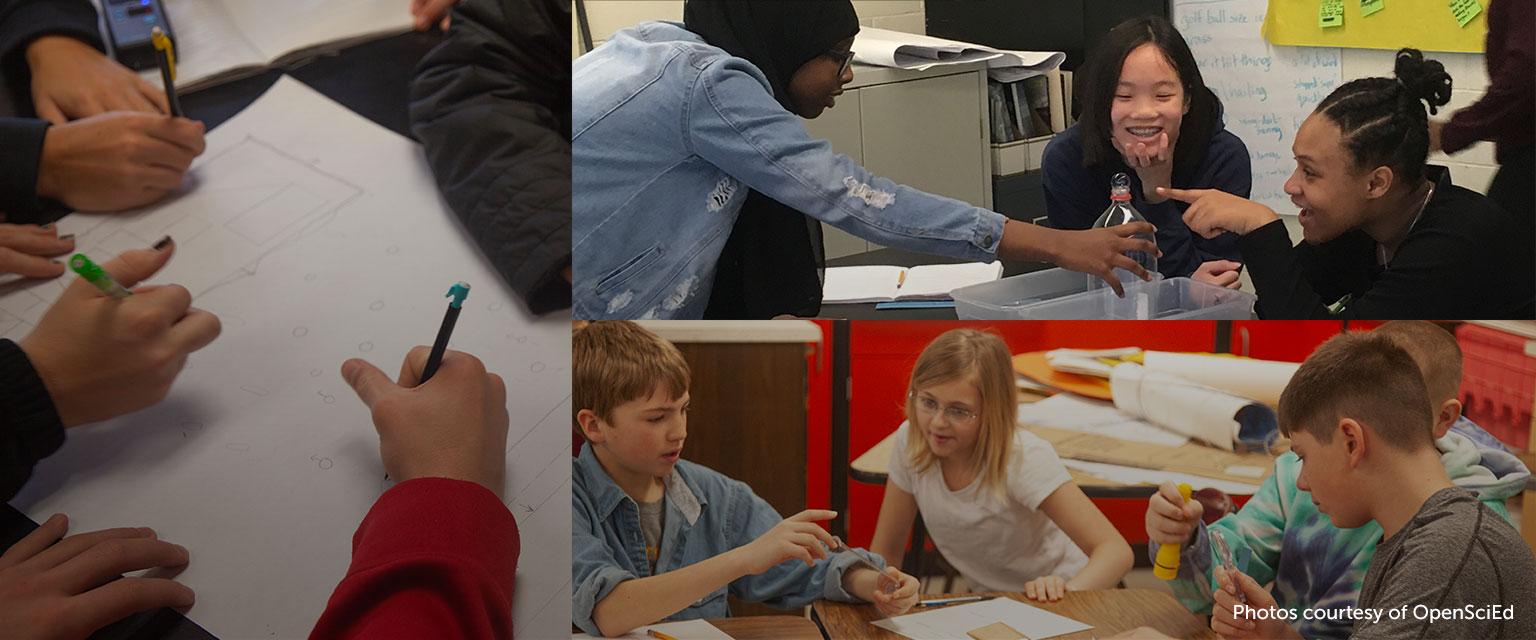
The OpenSciEd Research Community is a network of innovators, researchers, practitioners, and policymakers to support OpenSciEd-enabled research, build cross-sector collaboration, and promote OpenSciEd innovations that support students, teachers, and districts.
We strongly encourage educators and researchers from historically and systematically excluded populations to participate in the community so that your voices are heard and represented. Join us in building a vibrant community committed to equitable science education and research.
For Practitioners and Policymakers
For Researchers and Innovators

We want to hear from you!
Please take this 5-minute survey and help us serve you better.
